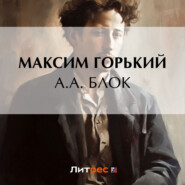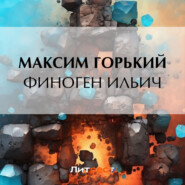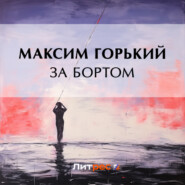По всем вопросам обращайтесь на: info@litportal.ru
(©) 2003-2025.
✖
Mother
Настройки чтения
Размер шрифта
Высота строк
Поля
"Will you go to the tavern with me to take some tea?" the old man asked her solicitously. "We have an hour and a half's time."
"I don't want to."
"Well, then I won't go, either. No, say! What fellows those are! They act as if they were the only real people, and the rest nothing at all. They'll all go scot-free, I'm sure. Look at Fedka, eh?"
Samoylov's father came up to them holding his hat in his hand. He smiled sullenly and said:
"My Vasily! He declined a defense, and doesn't want to palaver. He was the first to have the idea. Yours, Pelagueya, stood for lawyers; and mine said: 'I don't want one.' And four declined after him. Hm, ye-es."
At his side stood his wife. She blinked frequently, and wiped her nose with the end of her handkerchief. Samoylov took his beard in his hand, and continued looking at the floor.
"Now, this is the queer thing about it: you look at them, those devils, and you think they got up all this at random – they're ruining themselves for nothing. And suddenly you begin to think: 'And maybe they're right!' You remember that in the factory more like them keep on coming, keep on coming. They always get caught; but they're not destroyed, no more than common fish in the river get destroyed. No. And again you think, 'And maybe power is with them, too.'"
"It's hard for us, Stepan Petrov, to understand this affair," said Sizov.
"It's hard, yes," agreed Samoylov.
His wife noisily drawing in air through her nose remarked:
"They're all strong, those imps!" With an unrestrained smile on her broad, wizened face, she continued: "You, Nilovna, don't be angry with me because I just now slapped you, when I said that your son is to blame. A dog can tell who's the more to blame, to tell you the truth. Look at the gendarmes and the spies, what they said about our Vasily! He has shown what he can do too!"
She apparently was proud of her son, perhaps even without understanding her feeling; but the mother did understand her feeling, and answered with a kind smile and quiet words:
"A young heart is always nearer to the truth."
People rambled about the corridor, gathered into groups, speaking excitedly and thoughtfully in hollow voices. Scarcely anybody stood alone; all faces bore evidence of a desire to speak, to ask, to listen. In the narrow white passageway the people coiled about in sinuous curves, like dust carried in circles before a powerful wind. Everybody seemed to be seeking something hard and firm to stand upon.
The older brother of Bukin, a tall, red-faced fellow, waved his hands and turned about rapidly in all directions.
"The district elder Klepanov has no place in this case," he declared aloud.
"Keep still, Konstantin!" his father, a little old man, tried to dissuade him, and looked around cautiously.
"No; I'm going to speak out! There's a rumor afloat about him that last year he killed a clerk of his on account of the clerk's wife. What kind of a judge is he? permit me to ask. He lives with the wife of his clerk – what have you got to say to that? Besides, he's a well-known thief!"
"Oh, my little father – Konstantin!"
"True!" said Samoylov. "True, the court is not a very just one."
Bukin heard his voice and quickly walked up to him, drawing the whole crowd after him. Red with excitement, he waved his hands and said:
"For thievery, for murder, jurymen do the trying. They're common people, peasants, merchants, if you please; but for going against the authorities you're tried by the authorities. How's that?"
"Konstantin! Why are they against the authorities? Ah, you! They – "
"No, wait! Fedor Mazin said the truth. If you insult me, and I land you one on your jaw, and you try me for it, of course I'm going to turn out guilty. But the first offender – who was it? You? Of course, you!"
The watchman, a gray man with a hooked nose and medals on his chest, pushed the crowd apart, and said to Bukin, shaking his finger at him:
"Hey! don't shout! Don't you know where you are? Do you think this is a saloon?"
"Permit me, my cavalier, I know where I am. Listen! If I strike you and you me, and I go and try you, what would you think?"
"And I'll order you out," said the watchman sternly.
"Where to? What for?"
"Into the street, so that you shan't bawl."
"The chief thing for them is that people should keep their mouths shut."
"And what do you think?" the old man bawled. Bukin threw out his hands, and again measuring the public with his eyes, began to speak in a lower voice:
"And again – why are the people not permitted to be at the trial, but only the relatives? If you judge righteously, then judge in front of everybody. What is there to be afraid of?"
Samoylov repeated, but this time in a louder tone:
"The trial is not altogether just, that's true."
The mother wanted to say to him that she had heard from Nikolay of the dishonesty of the court; but she had not wholly comprehended Nikolay, and had forgotten some of his words. While trying to recall them she moved aside from the people, and noticed that somebody was looking at her – a young man with a light mustache. He held his right hand in the pocket of his trousers, which made his left shoulder seem lower than the right, and this peculiarity of his figure seemed familiar to the mother. But he turned from her, and she again lost herself in the endeavor to recollect, and forgot about him immediately. In a minute, however, her ear was caught by the low question:
"This woman on the left?"
And somebody in a louder voice cheerfully answered:
"Yes."
She looked around. The man with the uneven shoulders stood sidewise toward her, and said something to his neighbor, a black-bearded fellow with a short overcoat and boots up to his knees.
Again her memory stirred uneasily, but did not yield any distinct results.
The watchman opened the door of the hall, and shouted:
"Relatives, enter; show your tickets!"
A sullen voice said lazily:
"Tickets! Like a circus!"
All the people now showed signs of a dull excitement, an uneasy passion. They began to behave more freely, and hummed and disputed with the watchman.
Sitting down on the bench, Sizov mumbled something to the mother.
"What is it?" asked the mother.
"Oh, nothing – the people are fools! They know nothing; they live groping about and groping about."
The bellman rang; somebody announced indifferently:
"I don't want to."
"Well, then I won't go, either. No, say! What fellows those are! They act as if they were the only real people, and the rest nothing at all. They'll all go scot-free, I'm sure. Look at Fedka, eh?"
Samoylov's father came up to them holding his hat in his hand. He smiled sullenly and said:
"My Vasily! He declined a defense, and doesn't want to palaver. He was the first to have the idea. Yours, Pelagueya, stood for lawyers; and mine said: 'I don't want one.' And four declined after him. Hm, ye-es."
At his side stood his wife. She blinked frequently, and wiped her nose with the end of her handkerchief. Samoylov took his beard in his hand, and continued looking at the floor.
"Now, this is the queer thing about it: you look at them, those devils, and you think they got up all this at random – they're ruining themselves for nothing. And suddenly you begin to think: 'And maybe they're right!' You remember that in the factory more like them keep on coming, keep on coming. They always get caught; but they're not destroyed, no more than common fish in the river get destroyed. No. And again you think, 'And maybe power is with them, too.'"
"It's hard for us, Stepan Petrov, to understand this affair," said Sizov.
"It's hard, yes," agreed Samoylov.
His wife noisily drawing in air through her nose remarked:
"They're all strong, those imps!" With an unrestrained smile on her broad, wizened face, she continued: "You, Nilovna, don't be angry with me because I just now slapped you, when I said that your son is to blame. A dog can tell who's the more to blame, to tell you the truth. Look at the gendarmes and the spies, what they said about our Vasily! He has shown what he can do too!"
She apparently was proud of her son, perhaps even without understanding her feeling; but the mother did understand her feeling, and answered with a kind smile and quiet words:
"A young heart is always nearer to the truth."
People rambled about the corridor, gathered into groups, speaking excitedly and thoughtfully in hollow voices. Scarcely anybody stood alone; all faces bore evidence of a desire to speak, to ask, to listen. In the narrow white passageway the people coiled about in sinuous curves, like dust carried in circles before a powerful wind. Everybody seemed to be seeking something hard and firm to stand upon.
The older brother of Bukin, a tall, red-faced fellow, waved his hands and turned about rapidly in all directions.
"The district elder Klepanov has no place in this case," he declared aloud.
"Keep still, Konstantin!" his father, a little old man, tried to dissuade him, and looked around cautiously.
"No; I'm going to speak out! There's a rumor afloat about him that last year he killed a clerk of his on account of the clerk's wife. What kind of a judge is he? permit me to ask. He lives with the wife of his clerk – what have you got to say to that? Besides, he's a well-known thief!"
"Oh, my little father – Konstantin!"
"True!" said Samoylov. "True, the court is not a very just one."
Bukin heard his voice and quickly walked up to him, drawing the whole crowd after him. Red with excitement, he waved his hands and said:
"For thievery, for murder, jurymen do the trying. They're common people, peasants, merchants, if you please; but for going against the authorities you're tried by the authorities. How's that?"
"Konstantin! Why are they against the authorities? Ah, you! They – "
"No, wait! Fedor Mazin said the truth. If you insult me, and I land you one on your jaw, and you try me for it, of course I'm going to turn out guilty. But the first offender – who was it? You? Of course, you!"
The watchman, a gray man with a hooked nose and medals on his chest, pushed the crowd apart, and said to Bukin, shaking his finger at him:
"Hey! don't shout! Don't you know where you are? Do you think this is a saloon?"
"Permit me, my cavalier, I know where I am. Listen! If I strike you and you me, and I go and try you, what would you think?"
"And I'll order you out," said the watchman sternly.
"Where to? What for?"
"Into the street, so that you shan't bawl."
"The chief thing for them is that people should keep their mouths shut."
"And what do you think?" the old man bawled. Bukin threw out his hands, and again measuring the public with his eyes, began to speak in a lower voice:
"And again – why are the people not permitted to be at the trial, but only the relatives? If you judge righteously, then judge in front of everybody. What is there to be afraid of?"
Samoylov repeated, but this time in a louder tone:
"The trial is not altogether just, that's true."
The mother wanted to say to him that she had heard from Nikolay of the dishonesty of the court; but she had not wholly comprehended Nikolay, and had forgotten some of his words. While trying to recall them she moved aside from the people, and noticed that somebody was looking at her – a young man with a light mustache. He held his right hand in the pocket of his trousers, which made his left shoulder seem lower than the right, and this peculiarity of his figure seemed familiar to the mother. But he turned from her, and she again lost herself in the endeavor to recollect, and forgot about him immediately. In a minute, however, her ear was caught by the low question:
"This woman on the left?"
And somebody in a louder voice cheerfully answered:
"Yes."
She looked around. The man with the uneven shoulders stood sidewise toward her, and said something to his neighbor, a black-bearded fellow with a short overcoat and boots up to his knees.
Again her memory stirred uneasily, but did not yield any distinct results.
The watchman opened the door of the hall, and shouted:
"Relatives, enter; show your tickets!"
A sullen voice said lazily:
"Tickets! Like a circus!"
All the people now showed signs of a dull excitement, an uneasy passion. They began to behave more freely, and hummed and disputed with the watchman.
Sitting down on the bench, Sizov mumbled something to the mother.
"What is it?" asked the mother.
"Oh, nothing – the people are fools! They know nothing; they live groping about and groping about."
The bellman rang; somebody announced indifferently:

















